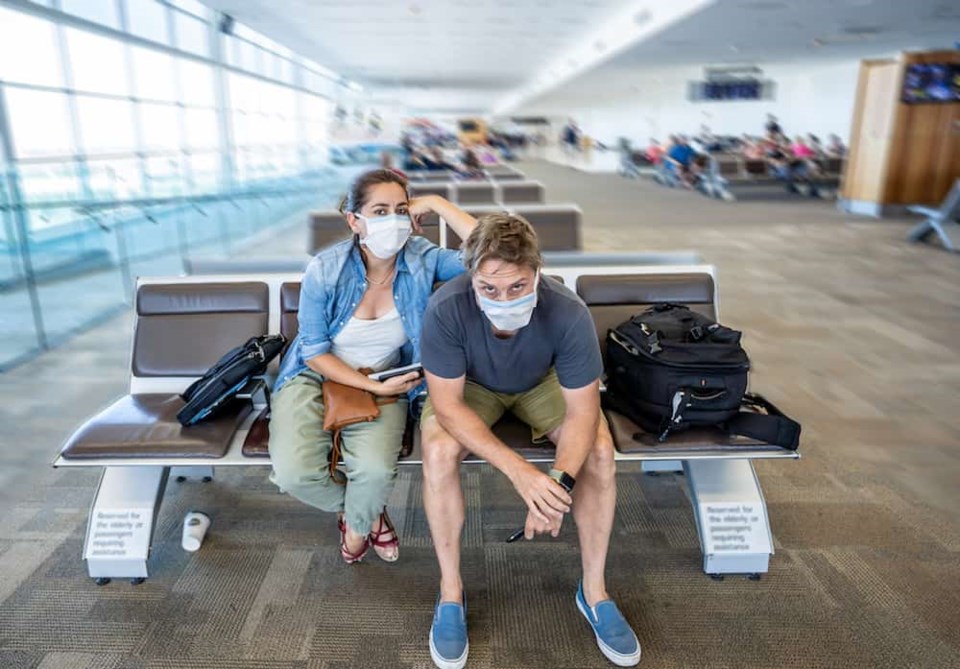The BC Centre for Disease Control (BCCDC) is warning airline passengers they may have been exposed to coronavirus (COVID-19) on a few recent Â鶹´«Ã½Ó³»flights.
Over the weekend, Â鶹´«Ã½Ó³» shared 14 new Â鶹´«Ã½Ó³»flights that were added to the list of potential COVID-19 public exposures.
Since then, the following three new flights have been added to the BCCDC's list of affected flights:
- Dec. 9: Air Canada 115, Toronto to Â鶹´«Ã½Ó³»(Rows 23 - 28)
- Dec. 14: Air Canada 103, Toronto to Â鶹´«Ã½Ó³»(Rows 50 - 55)
- Dec. 19: Air Canada 3, Â鶹´«Ã½Ó³»to Tokyo (Rows 24 - 30)
Any travellers returning to B.C. are encouraged to check the public health agency's website for updates about flights identified for the risk of exposure. Those travelling from outside of Canada, meanwhile, must arrive prepared with a 14-day self-isolation plan.
Pre and post-travel considerations during the coronavirus (COVID-19) pandemic
Currently, the Government of Canada states that you should avoid all travel outside of the country until further notice due to the novel coronavirus pandemic. In a global travel advisory, the government notes that "This advisory overrides other risk levels on this page, with the exception of any risk levels for countries or regions where we advise to avoid all travel."
With this in mind, if you do have to travel for an essential purpose, there are several things to keep in mind before you fly. As of Nov. 21, air travellers whose final destination is Canada must submit their information electronically through ArriveCAN before they board their flight. This includes travel and contact information, quarantine plan (unless exempted under conditions set out in the ), and COVID-19 symptom self-assessment.
Travellers must be ready to show their ArriveCAN receipt when seeking entry into Canada; a border services officer will verify that they have submitted their information digitally.
Travellers who do not submit the required information digitally before boarding their flight could be subject to enforcement action, which can range from verbal warnings to a $1,000 fine. However, exceptions will be made for those unable to submit documents electronically "due to personal circumstances, such as a disability or inadequate infrastructure."
Find out more information here.




